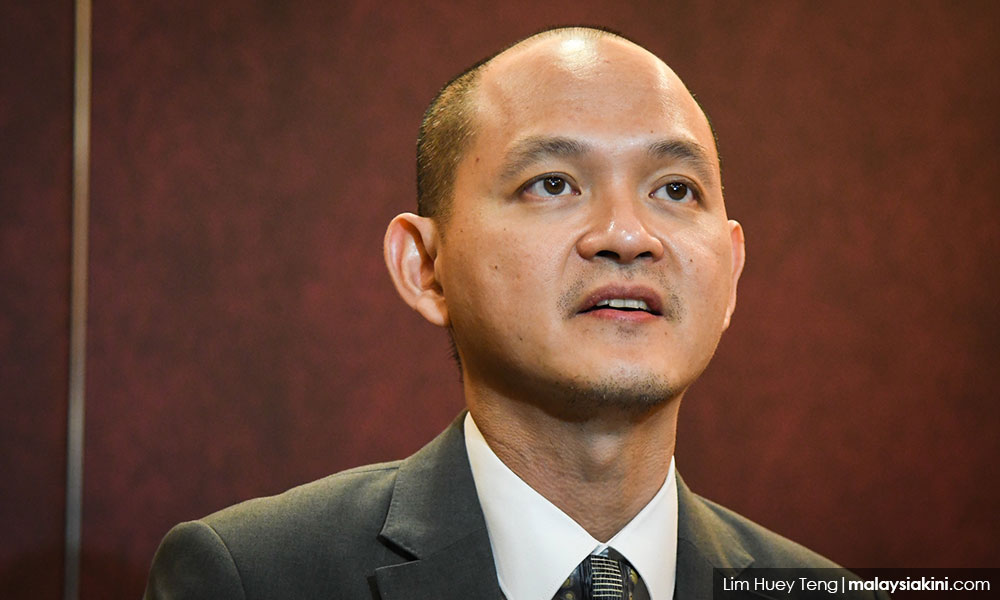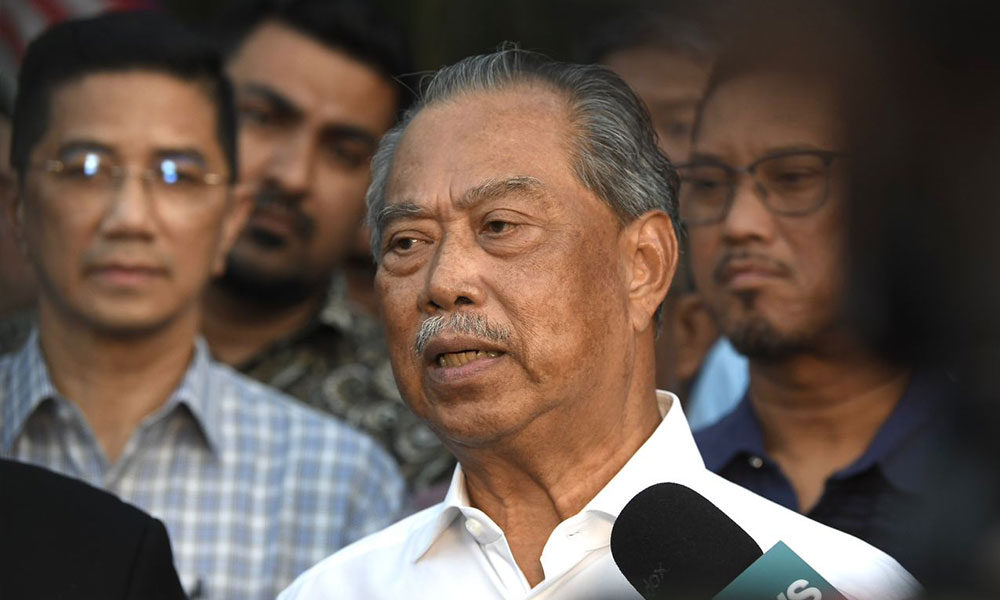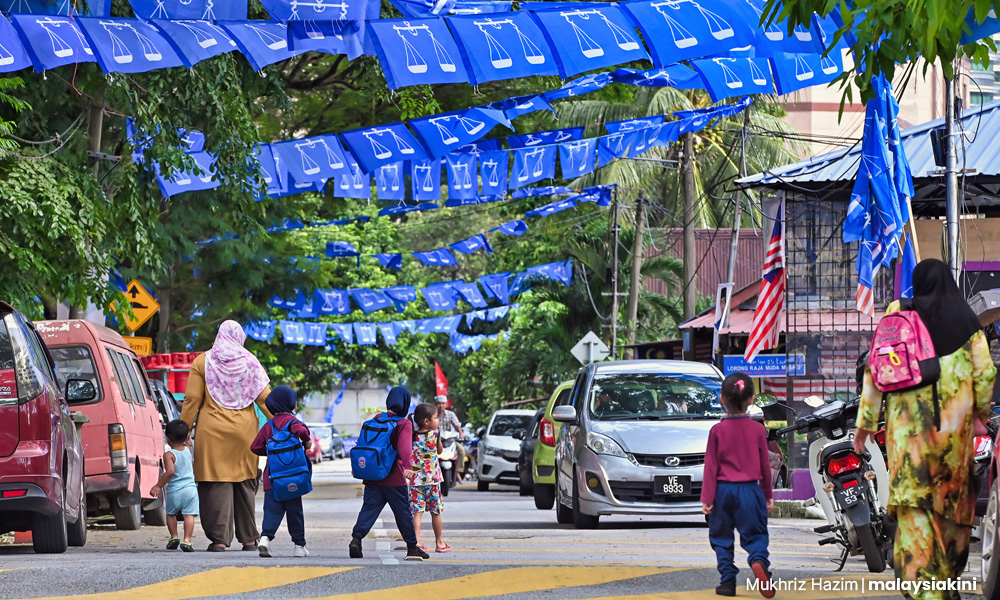After an intense divisive election with no clear winner and five days of political uncertainty, Pakatan Harapan’s Anwar Ibrahim has been appointed as prime minister.
While he is expected to lead a unity government, the country is deeply divided with tensions boiling between Harapan and Perikatan Nasional (PN) supporters.
PN supporters have been accused of being behind fear-mongering videos on TikTok, including warning of another May 13 riot.
The palace’s announcement that Anwar would be prime minister today appeared to further aggravate the more hardline PN supporters who warned that Islam will be severely undermined under his administration.
This has in turn inflamed Harapan supporters who are pushing back against what is perceived as threats to peace and harmony in a multiracial and multireligious nation.
According to political analyst Bridget Welsh, Harapan only won around 11 percent of Malay support, while PN took about 54 percent.
The remaining 33 percent went to Harapan’s main unity partner BN, she told radio station BFM in an interview this afternoon.
Welsh also estimated that PN - which she described as the country’s most conservative coalition - won most of the Malay youth votes.
Against this backdrop, an olive branch from Anwar to PN would be prudent, both for national and political stability.
Besides cooling down tensions, some form of cooperation between Harapan and PN could spare Anwar’s government from being undermined by protests and online attacks from conservative elements that the previous Harapan administration suffered.
Welsh noted in her interview that Harapan acting with an opposition mindset in 2018 instead of mending bridges also led to its eventual downfall in 2020.
Former Bangi MP Ong Kian Ming said in a statement today the reality that many Malays chose PN as their alternative to Umno should not be ignored.

At least two options are available for Anwar to reach out to PN.
Option 1: PN in govt
The first is to bring PN into the fold as part of his unity government - which would mean that there is no opposition.
This would, however, pose problems for Anwar’s pledge to have a smaller cabinet if he has to entertain too many parties' requests for ministerial positions.
Too broad a coalition with multiple ideological differences could also be a stumbling block for Anwar and Harapan’s plans to implement reforms.
Anwar also risks provoking his own support base - which views PN and its component PAS especially, as being a direct threat to their values.
Further, without an opposition, there would be less effective checks and balances against the government as those in the government would have vested interests not to be overly critical.
Option 2: CSA
Anwar’s second option may be more prudent - to secure a confidence and supply agreement (CSA) with PN.
This would ensure support for fiscal bills and political stability while allowing PN to still function as an opposition that would be critical of the government.
Such a deal could include some reforms or pledges from PN’s election manifesto that align with Harapan’s ideals.
Ong suggested that PN also be allocated equal constituency allocations, as well as their MPs leading between one-third and half of the Parliament select committees.
For PN, agreeing to some form of cooperation with Anwar would give the impression that it is respecting the wishes of the Yang di-Pertuan Agong, who called on all MPs to work together for the country.
This would help counteract accusations that it had disobeyed the king by initially rejecting a unity government proposal when coalition chief Muhyiddin Yassin had an audience with the king.

It would also save PN from losing credibility among its supporters by joining the Anwar unity government - after its firm ‘no Harapan’ stance made after the general election results came out.
There is speculation that Anwar may have reached out to PN prior to the palace announcing his premiership.
However, PN leaders have not responded to Malaysiakini’s requests for comment on the matter.
Option 3: Chaos
Anwar can, of course, choose to do nothing and snub PN entirely.
Harapan and BN combined have 112 seats - if all BN MPs are on board - while Anwar is also expected to get support from Warisan (three seats), as well as GPS (23) and GRS (six) which pledged to back whoever the king appoints as prime minister.
This could see Anwar control almost two-thirds of the Dewan Rakyat.
However, with PN controlling a major support base among Malays across the Peninsular, there would be an ever-present risk of protests and rallies against the Anwar government and any reforms they may wish to push forward.
Losing the Malay ground may also spook BN - who needs to regain Malay support - and cause them to abandon the unity government.

Meanwhile, besides an olive branch with PN, Ong said Harapan and the unity government must control the “extremists” from within their own ranks.
“One of the main reasons why the Sheraton Move could take place was because ‘extremist’ voices from within the ranks of Harapan openly attacked their own government, especially then prime minister Dr Mahathir Mohamad.
“Such voices will likely undermine the unity government, especially if their voices put internal pressure on leaders from the respective parties in government to pivot towards their ‘extremist’ positions.
“If such voices from within each party are not properly dealt with, the new unity government may prove to be a short-lived one,” he warned. - Mkini



No comments:
Post a Comment
Note: Only a member of this blog may post a comment.